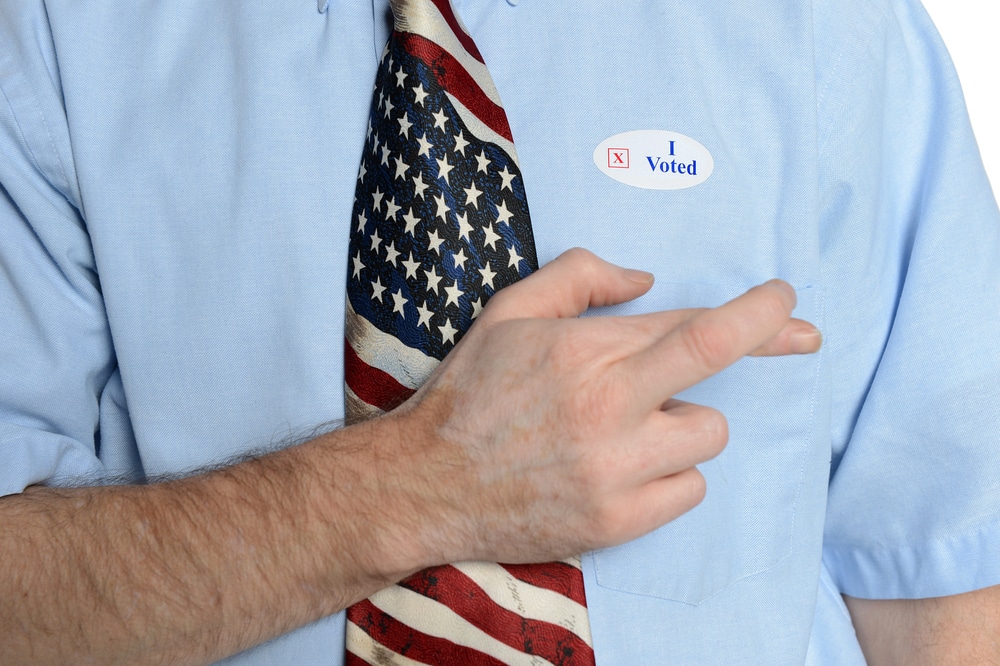A couple weeks back, the managing editor here at the Libertarian Institute, Keith Knight, posted on Twitter/X about voter ignorance. The post, which featured the headline “Monetary Policy by the Taylor Rule,” along with the associated equation, concluded with the comment: “What % of voters know this and can comprehend this? How long would it take to teach everyone? Democracy is a joke, privitize [sic] everything.”
While voters might be forgiven for not being able to parse the arcane occult of highly mathematized macroeconomic policy—no matter their other scholastic qualifications, those lacking graduate training in economics are unlikely to be able to do so—a survey of voter competency across a broader range of metrics provides no great comfort.
Indeed, Knight’s criticism and prescription stand.
Consider the following recent examples a quick search revealed:
- 2017 Annenberg Public Policy Center Study: This found that only 26% of Americans could name all three branches of government, while 33% couldn’t name any branches at all, underscoring a lack of basic civic knowledge.
- 2010 Pew Research Center Knowledge Survey: Around 45% of respondents did not know that the Republican Party was generally considered more conservative than the Democratic Party, indicating a basic lack of understanding about the ideological differences between the major parties.
- 2018 National Election Studies: A significant number of voters misidentified which party controlled Congress. Despite widespread media coverage, many voters were confused about which party had the majority in the U.S. House and Senate, demonstrating low political awareness.
- 2010 Survey by Xavier University: This survey found that one-third of voters did not know that the Bill of Rights is part of the U.S. Constitution, revealing a gap in basic constitutional knowledge.
- 2019 Quinnipiac University Poll: This found that a significant percentage of Americans, over 50%, believed that Social Security was funded by a government trust fund rather than through a pay-as-you-go system where current workers’ payroll taxes fund current retirees’ benefits.
These instances illustrate a wide range of voter ignorance, from misinformation to a lack of knowledge about key political processes, policies, and historical facts. They highlight the challenges voters face in making informed decisions in elections—and this is hardly new!
Consider these earlier instances of voter ignorance, provided by the political scientist Jason Brennan in his Against Democracy:
“Immediately before the 2004 presidential election, almost 70 percent of U.S. citizens were unaware that Congress had added a prescription drug benefit to Medicare, though this was a giant increase to the federal budget and the largest new entitlement program since President Lyndon Johnson began the War on Poverty.”
“In 1964, only a minority of citizens knew that the Soviet Union was not a member of NATO…the organization created to oppose the Soviet Union.”
“During the 2000 U.S. presidential election…[only] slightly more than half of all Americans knew Al Gore was more liberal than Bush…[and] only 37 percent knew that federal spending on the poor had increased or that crime had decreased in the 1990s.”
“Even though many Americans in 1992 knew that unemployment had risen under George H. W. Bush, the majority of Americans were unable to estimate the unemployment rate within 5 percentage points of the actual figure. When asked to guess what the unemployment rate was, the majority of voters guessed it was twice as high as the actual rate.”
As bleak as this picture of voter competence is, arguably even worse is the incentive structure surrounding voting and competency. The value of a single vote is so small and the cost of being actually informed being so high, as the economist Bryan Caplan has observed, voters actually have an incentive to be “rationally irrational.”
That is, due to our being “wired” for tribalism, that is being devoted to “our team” against an “other,” the neurochemical reward for just picking a side and blindly adhering to its positions without any further inquiry far outweighs any possible benefit from taking the accumulated time and energy it takes each day to stay informed on the necessary issues in order to be able to vote competently.
With all this having been said, it seems almost an afterthought to add that there is no satisfactory justification for such voters having power over you or your loved ones. Having previously criticized the various justifications for universal suffrage and any moral case for necessarily voting, and having advocated populating any government we have by literal lottery, one finds at the end of the day they can do nothing but echo Keith’s sentiments, referenced in opening: Privatize everything.

































